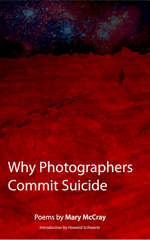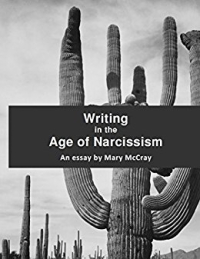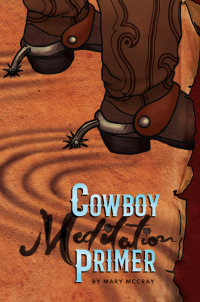While I was driving out to Phoenix in August to meet the writing group, I listened to hours of interesting podcasts. I've been meaning to list them here (but the big-bad move got in the way).
 I started early in the morning with PBS News Hour poetry podcasts, both current episodes and ones from last year.
I started early in the morning with PBS News Hour poetry podcasts, both current episodes and ones from last year.
— HIGHLY RECOMMENDED: A podcast on the book Facing the Wave: A Journey in the Wake of the Tsunami by Gretel Ehrlich, a book about the Japanese tsunami survivors. She quotes William Stafford who said, a "poem is an emergency of the spirit." She talks about "beauty framed by impermanence" and how "you have to be alive to die."
– HIGHLY RECOMMENDED: A podcast with Eliza Griswold who visits Afghanistan to learn how an ancient Afghan oral folk poetry form has adapted to tell the story of the modern life for Afghani women.These anonymous poems are highly subversive and cover comments about penis size, sex and rage at the Taliban in a protected, collective poetry form without authorship. Afghani women are not allowed to write poems and could be put to death for attempting to. You can read more about Griswold's project at Poetry Foundation: http://www.poetryfoundation.org/media/landays.html.
As a contrast to all the poets I've been reading who deal with identity
and language struggles, these first two podcasts reminded me how meaningful and useful a
simple witness poem, all arguments aside, can be.
—RECOMMENDED: A podcast interviewing Richard Blanco and some behind-the-scenes information about how an inaugural poem comes to be, about starting with a theme, trying to tap into a universal question, how an inauguration committee picks one poem from several that a poet submits. It's interesting to learn Blanco is a whiz at math, which is why he started out as an engineer.
—RECOMMENDED: A podcast interviewing
editor Charles Henry Rowell about underappreciated African-American poets for a new anthology called "Angles of Ascent." Rowell quotes work I want to explore more, including Rita Dove (although I've been a fan of hers for years), Terrance Hayes and Natasha Trethewey.
–A podcast interviewing David Ferry
–A podcast catching up with Gerald Stern. They discuss how he views his old poetry against his new poetry and how there was not a single book he can remember in his parents' house growing up, only issues of Look Magazine.
—HIGHLY RECOMMENDED: A podcast covering the new anthology The Hungry Ear. Joy Harjo reads a poem called "Perhaps the World Ends Here" about life around the kitchen table. I crave this book! Just added it to my wish list.
 Then I moved over to some Scottish Poetry Library podcasts. These are longer in form and never disappoint. As I started to listen to them I found myself lost in a shortcut I was taking through rual Arizona, between Holbrook and Phoenix. I almost had a panic attack but found these podcasts very calming. How bad can things be happening when you're listening to someone talk about poetry?
Then I moved over to some Scottish Poetry Library podcasts. These are longer in form and never disappoint. As I started to listen to them I found myself lost in a shortcut I was taking through rual Arizona, between Holbrook and Phoenix. I almost had a panic attack but found these podcasts very calming. How bad can things be happening when you're listening to someone talk about poetry?
— RECOMMENDED: A podcast about poet George Szirtes and his positive thoughts on modern technology like blogging and twitter ("energy makes energy; the more you do, the more you can do; things grow out of things; technology changes the terms; imagination flows into available spaces. Why not [try and] see what else you are?"). They also discuss 1960s pop music and his poems based on Alfred Hitchcock and the song "Mony Mony."
–A podcast with Polish poet Tadeusz Dąbrowski and his war against post-modernism and empty allusions. To him language is reality. Hey says poets don't admit it but they write to be liked and accepted. He feels poetry should not be only for specialists. Although he often forgoes adding titles to his poems because he feels titles can explain too much.
—RECOMMENDED: A podcast with Australian poet Kona MacPhee and all her various career experiences, her interest in science fiction, and how "poems rub up against biorphgaical symbols." Like Richard Blanco, MacPhee had an interest in math and music before poetry and is interested in how we can "pack info into a small space" like a poem or computer code and how she's interested in the intersection of disciplines.
—HIGHLY RECOMMENDED: Tracey S. Rosenberg runs a podcast round table on the art of dealing with rejection letters and why "nobody feels comfortable talking about it." This was a great little podcast on working through submissions as they have an affect on your self-esteem, time and energy levels. Are you being rejected? Is your work being rejected? Or are you often just rejected by timing and all the factors over which you have no control. Also, they discuss how far you can edit yourself in service of finding acceptance in journals. "You can't edit what you don't know."
—RECOMMENDED: The last podcast I listened to on this trip covered language identity with Singapore poet Alvin Pang. I didn't get to finish this one but I was intrigued by his discussion of how how alienated Mandarin, Malaysian and Tamil-speaking writers are from each other due to their language differences, even though they share such a small space geographically. Pang also talks about using whimsy in resistance poetry, saying sometimes the "fool is the only one who [is allowed] to laugh at the King and get away with it." Pang says to just be a poet today is political because you're not doing what society expects of you. He also talks about the influence nursery rhymes had on his poetry.
I had so many more podcasts dowloaded to enjoy on the way home to Santa Fe but I think I was a little burned out by writing-chat because I played my iPod all the way home.



Leave a Reply